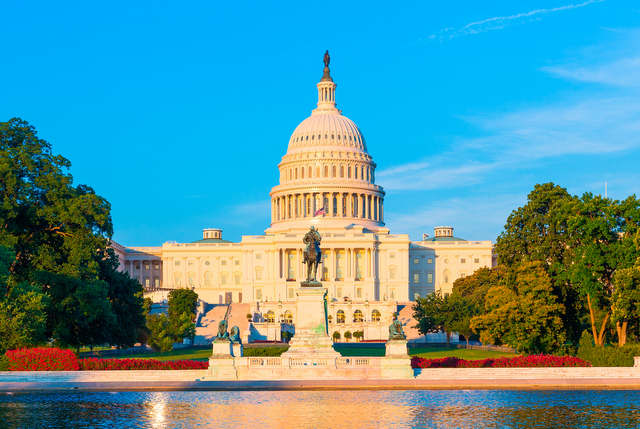
Solar experts believe that an effort to undo the two-year moratorium on tariffs that President Joe Biden established in June 2022 is likely to pass both chambers of Congress. Invoking the Congressional Review Act (CRA), the U.S. House of Representatives Ways & Means Committee approved new legislation to repeal the moratorium by a vote of 26-13. The bill will head to the full House for a vote in the next week.
Erin Duncan, VP of congressional affairs for the Solar Energy Industries Association (SEIA), described the CRA as a “blunt tool” to undo legislation with a simple up or down vote.
The bill is expected to pass in the Republican controlled House, and Duncan believes it has a good chance to pass in the Senate. She added that a filibuster will not be able to prevent a vote in the Senate because of the specific rules regarding the CRA, which says that if 30 Senators deem the bill a priority, it must be considered for a vote.
“There is a very strong likelihood that this legislation will reach the president’s desk,” Duncan said during a SEIA webinar on April 20. “We need to hold as many votes as we can.”
SEIA has been involved with lobbying efforts since CRA was invoked earlier this year. The organization is hoping to educate lawmakers on the impact that revoking the tariff moratorium would have on the solar industry and urging them to allow the next 14 months go as planned.
“I do think the president will veto this legislation, but there is such a thing as a veto override,” Duncan said, referring to the two-thirds majority vote in both chambers of Congress to overturn a presidential veto. “If this passes the Senate with a lopsided number of votes, we could have a very difficult task at hand. We don’t want to be in a position where we have to chase votes to avoid a veto override.”
Also participating in the SEIA webinar was Andrew Williams, VP of policy and corporate affairs for Sol Systems, who urged stakeholders in the solar industry to get involved in efforts to sway Representatives and Senators to vote against the legislation.
“This is the time to defend our business,” Williams said. “It’s not just about the CRA, but the follow along conversations as well. Don’t wait to get involved.”
Williams said that personal stories from businesses can be the most impactful with lawmakers, relating how this legislation would negatively impact companies in terms of economic investment and jobs.
According to a SEIA analysis, the passage of the CRA legislation would cost the solar industry $1 billion in retroactive tariffs, undermine efforts to ramp up domestic solar manufacturing, and result in the elimination of approximately 30,000 jobs, including 4,000 U.S. manufacturing jobs, and the cancelation of 4 GW in projects and about $4.2 billion in private investment in the solar industry.
Duncan added that the solar industry will likely be facing another big legal battle as House Speaker Kevin McCarthy (R-Calif.) on April 19 released a plan to raise the debt ceiling by $1.5 trillion for about a year while attempting to repeal major elements of the Biden agenda, including part of the Inflation Reduction Act (IRA), which has led to about 42 GW in solar project announcements since it was passed in August 2022.
“Take nothing for granted,” Duncan said. “This could have serious ramifications for our industry. No Republication supported the IRA. We need to build a constituency on both sides of the aisle. We do that by focusing on investment and jobs.”
Duncan and Williams urged solar industry stakeholders to take action by signing on to the letter that SEIA sent to lawmakers urging them to reject the CRA legislation, send letters to representatives and senators, and engage on social media with the hashtag #StopRetroactiveTariffs.
— Solar Builder magazine
Leave a Reply
You must be logged in to post a comment.